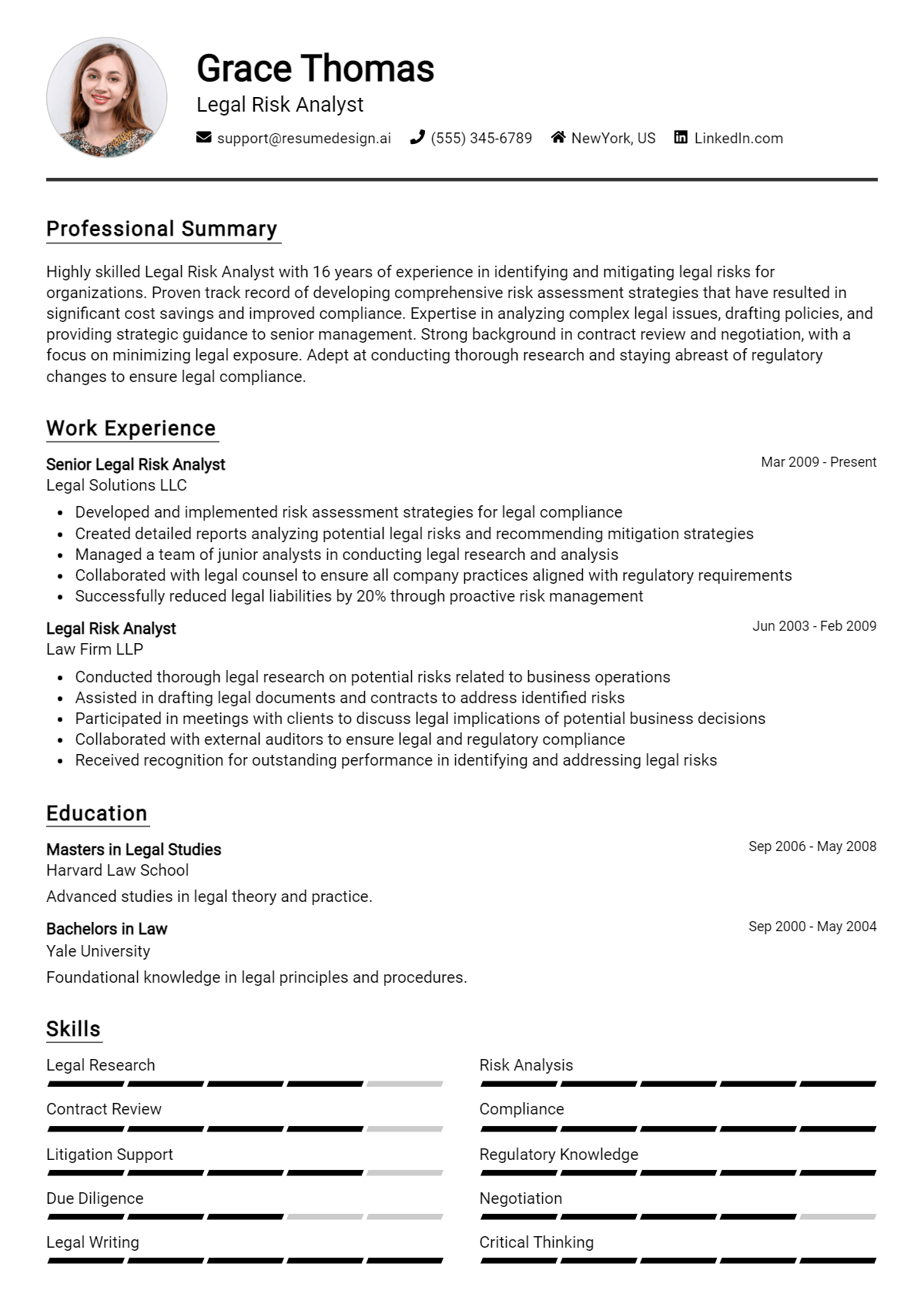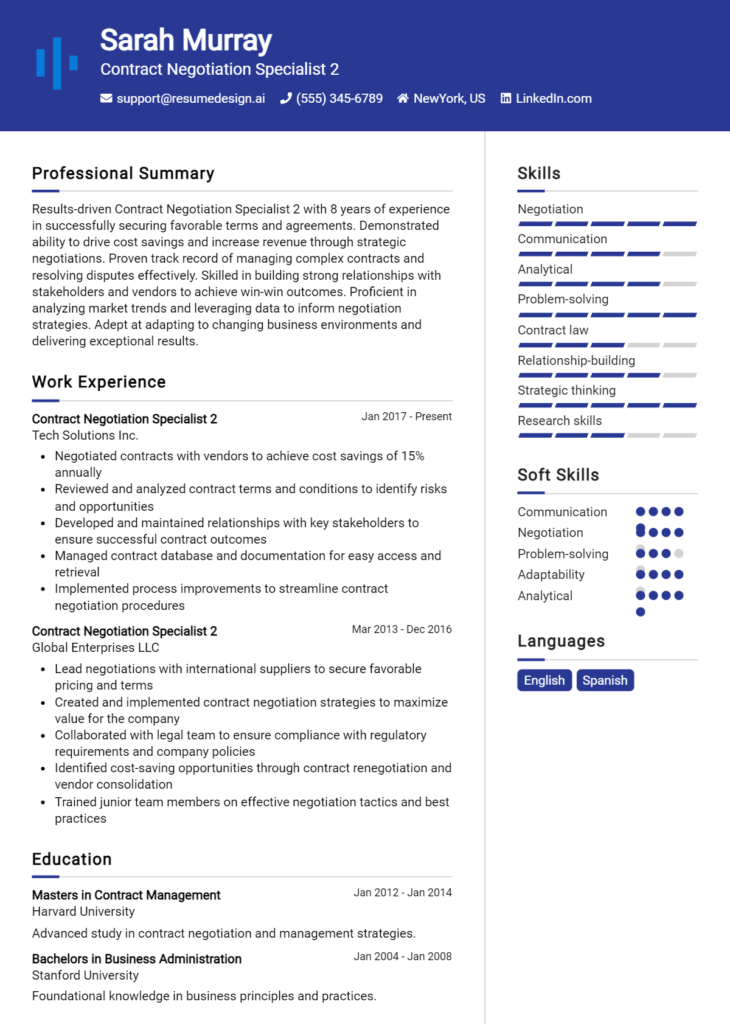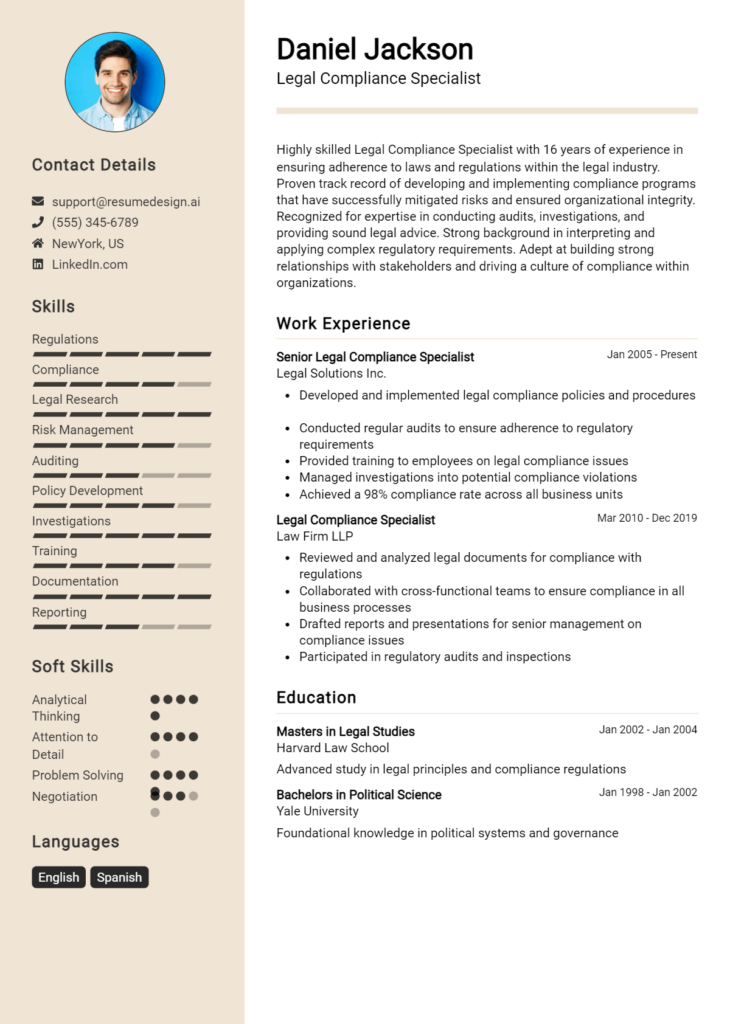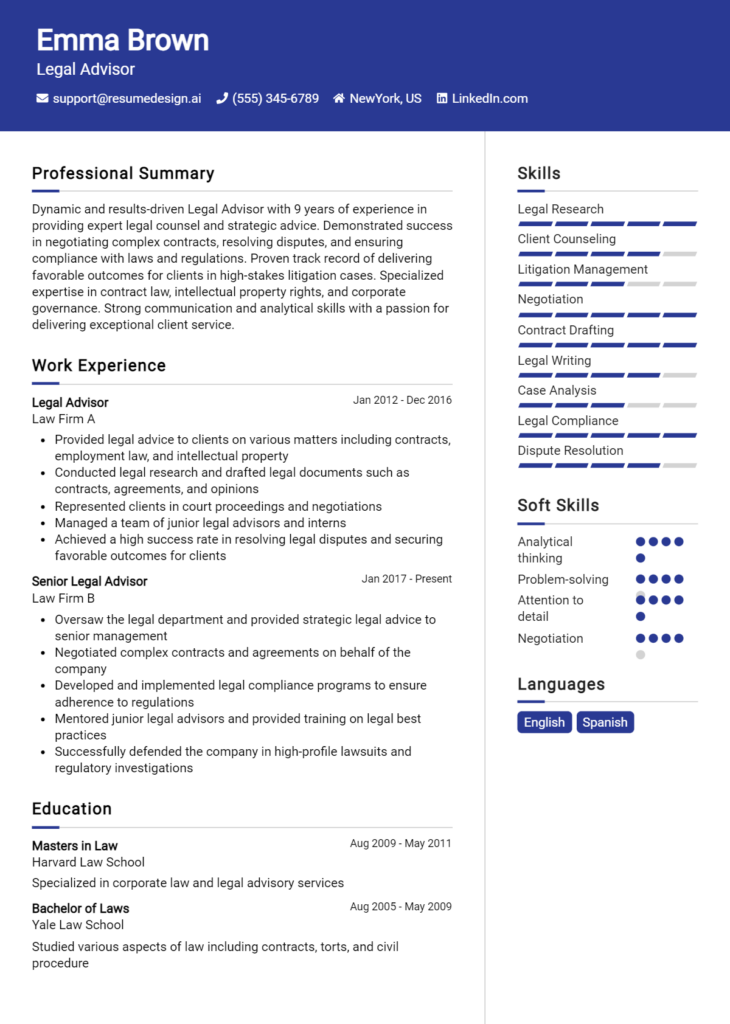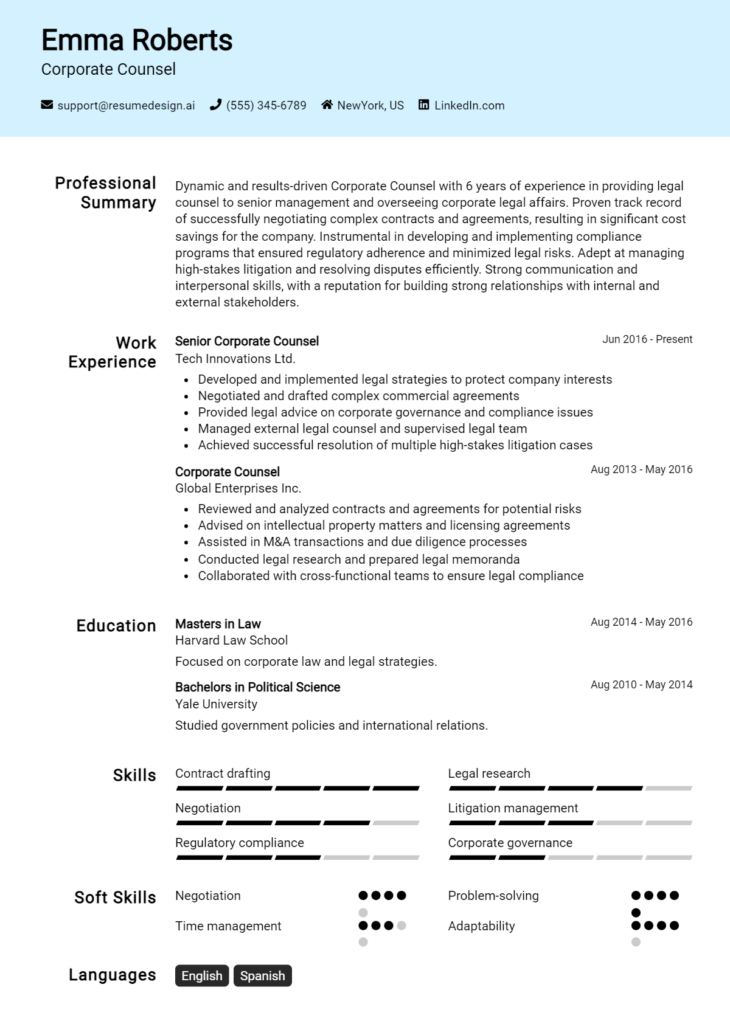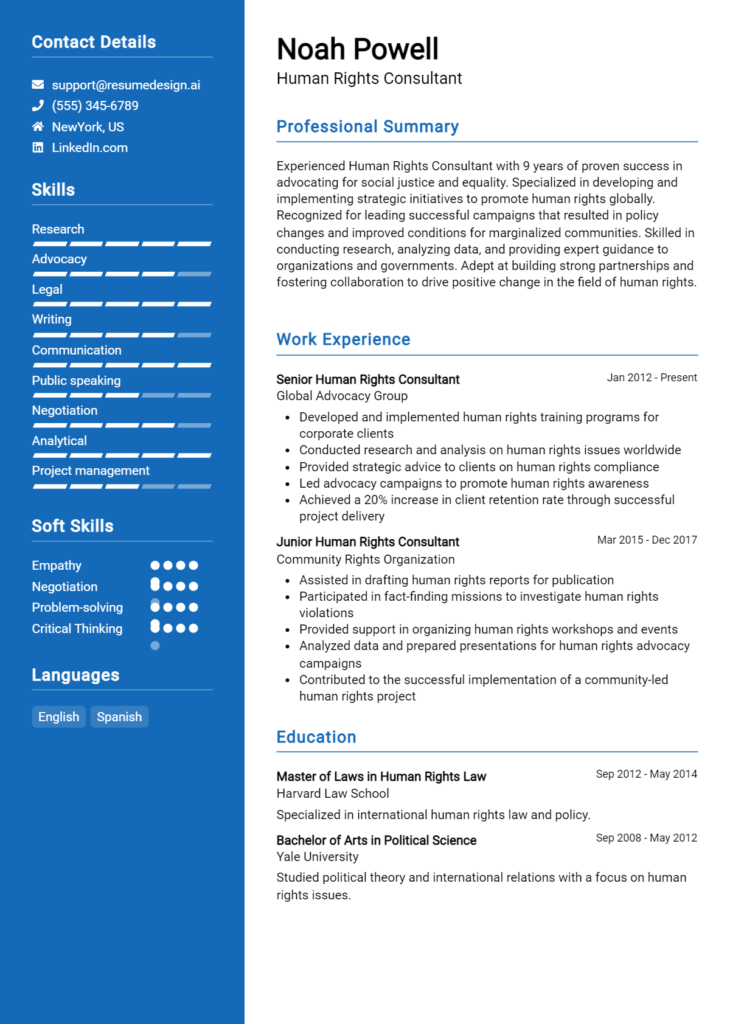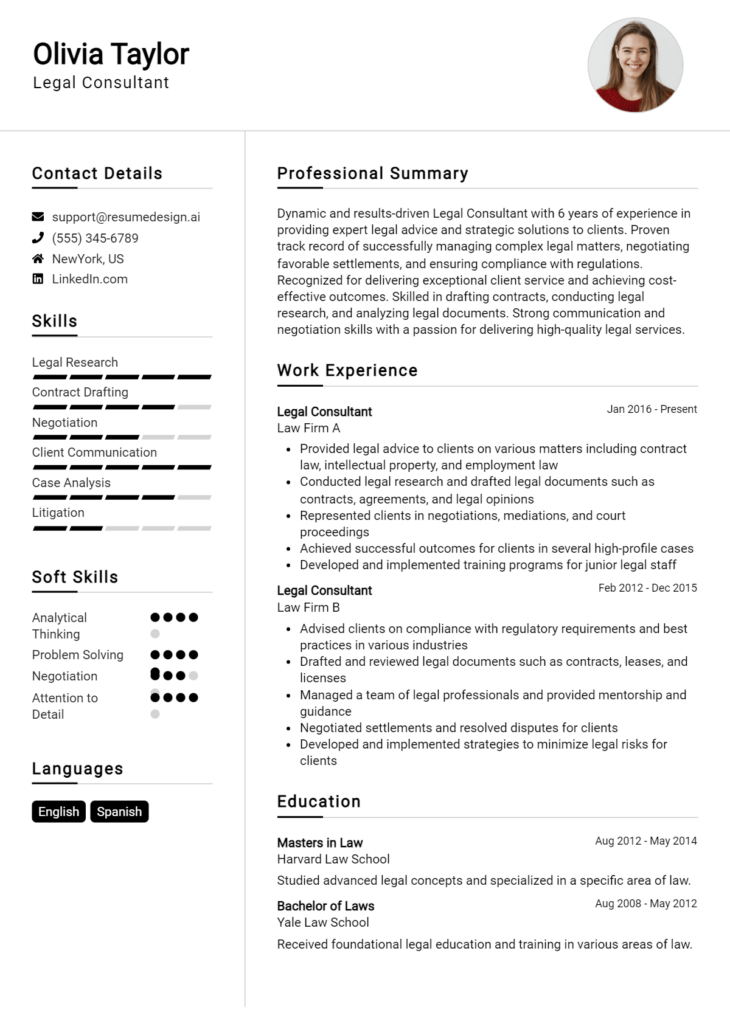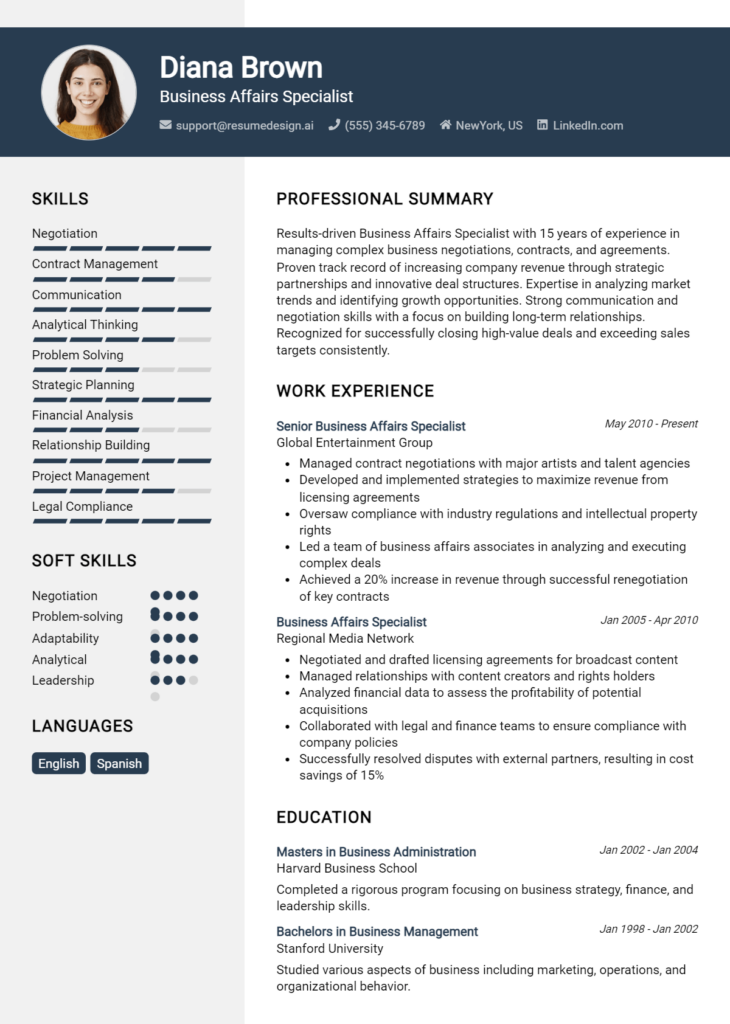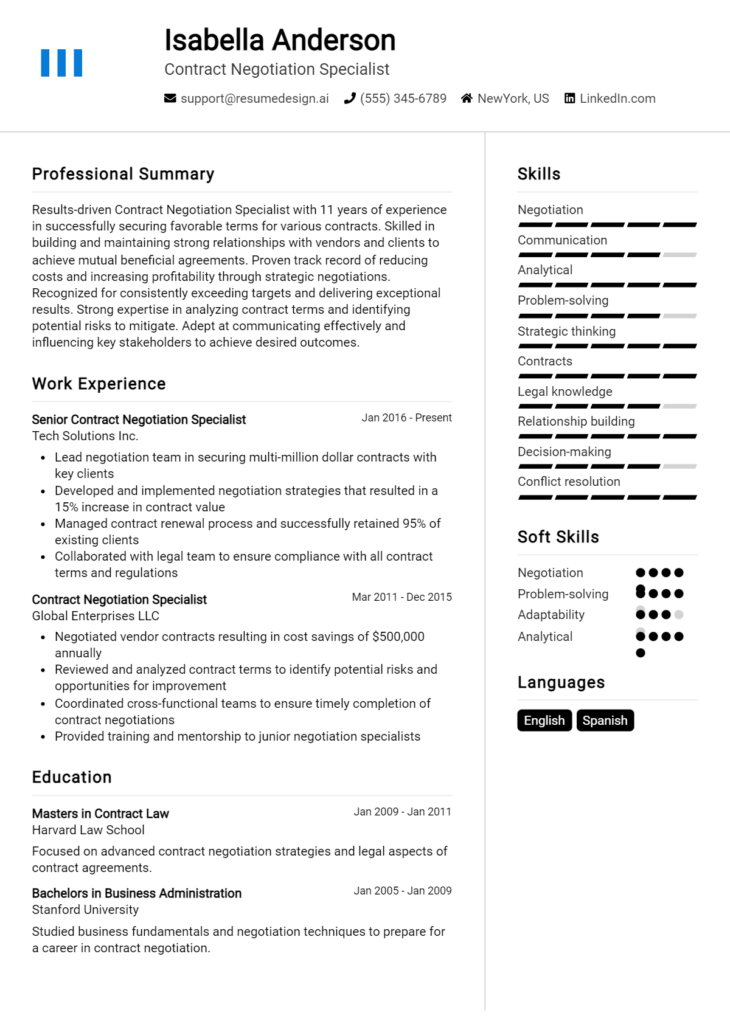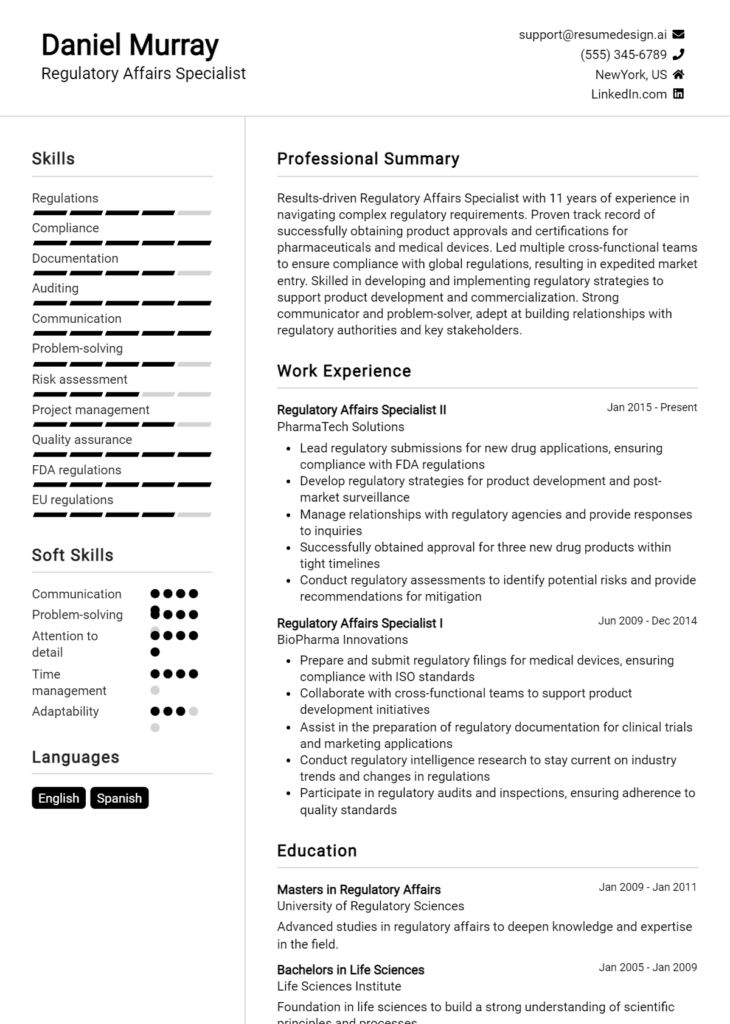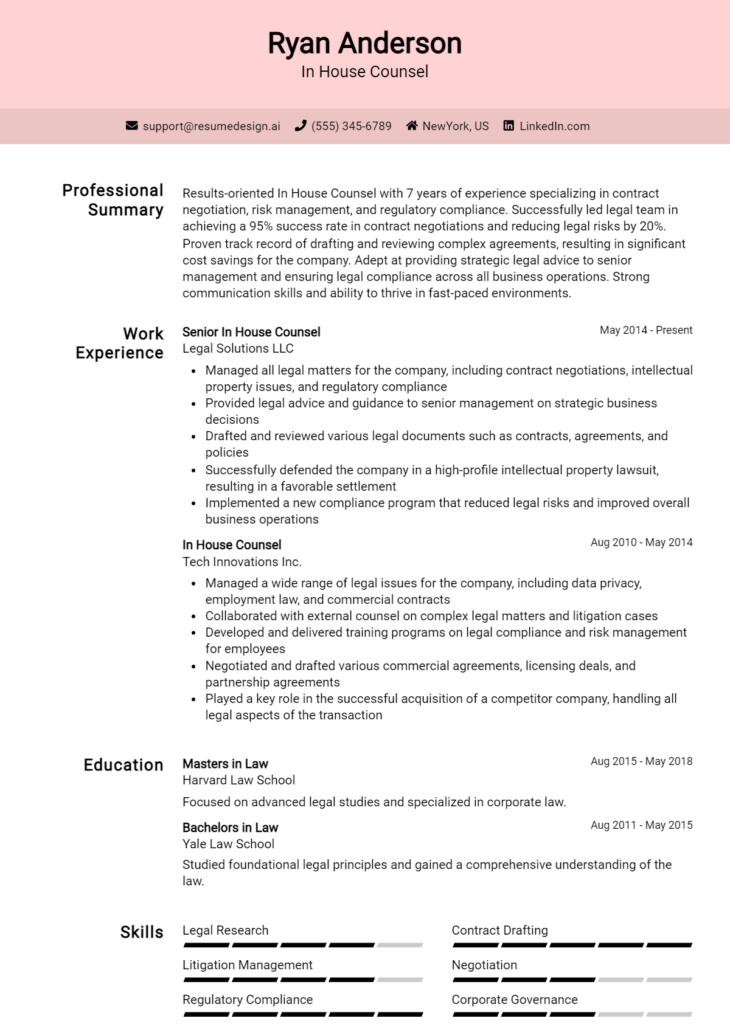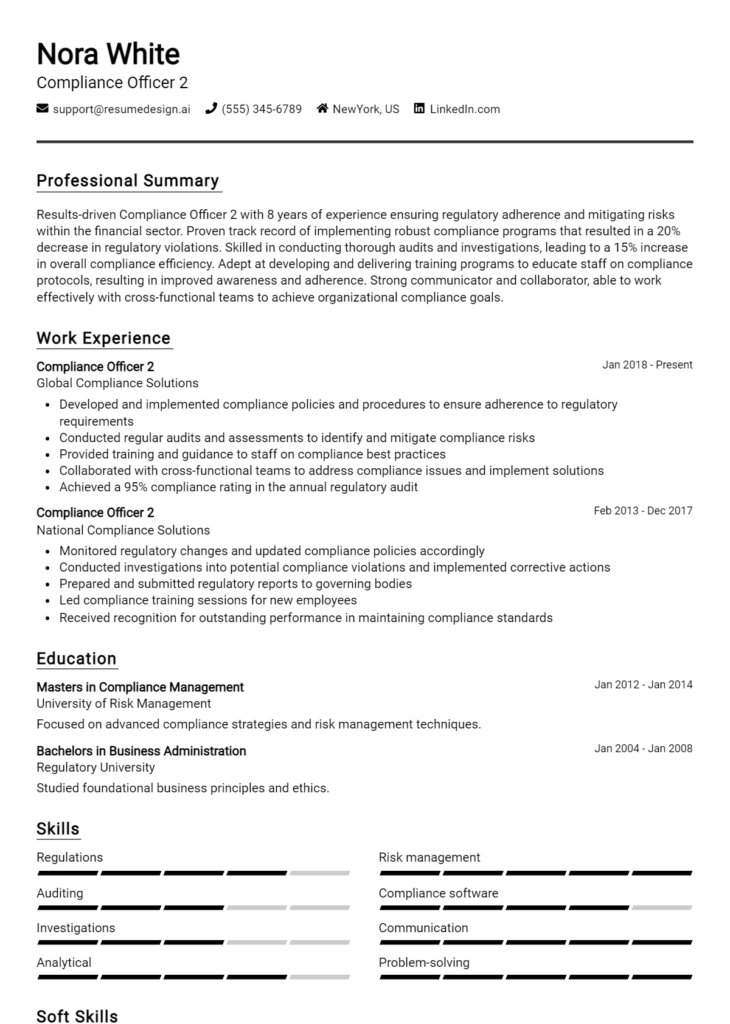Legal Risk Analyst Core Responsibilities
A Legal Risk Analyst plays a crucial role in identifying, assessing, and mitigating legal risks across various departments within an organization. This position requires a blend of technical expertise in legal frameworks, operational insight, and strong problem-solving abilities. By collaborating with legal, compliance, and business units, the analyst ensures that the organization adheres to regulations while supporting its strategic goals. A well-crafted resume should highlight these competencies, demonstrating the candidate's value in fostering a risk-aware culture.
Common Responsibilities Listed on Legal Risk Analyst Resume
- Conducting comprehensive legal risk assessments and audits.
- Developing and implementing risk management strategies.
- Collaborating with legal and compliance teams to ensure regulatory adherence.
- Analyzing contracts and agreements for potential risks.
- Preparing reports on risk exposure and mitigation efforts.
- Monitoring changes in laws and regulations affecting the organization.
- Training staff on legal risk awareness and compliance protocols.
- Assisting in the development of internal policies and procedures.
- Conducting due diligence for mergers, acquisitions, and partnerships.
- Providing recommendations for enhancing risk management practices.
- Communicating findings to senior management and stakeholders.
High-Level Resume Tips for Legal Risk Analyst Professionals
In the competitive field of legal risk analysis, a well-crafted resume is not just a document; it's an essential marketing tool that can open doors to new opportunities. As the first impression a candidate makes on a potential employer, your resume must effectively showcase both your skills and achievements in a clear and compelling manner. It should communicate your understanding of legal frameworks, risk assessment strategies, and analytical skills that are critical to the role. This guide will provide practical and actionable resume tips specifically tailored for Legal Risk Analyst professionals to help you create a standout resume that catches the attention of hiring managers.
Top Resume Tips for Legal Risk Analyst Professionals
- Tailor your resume to the job description by using keywords and phrases specific to the Legal Risk Analyst role.
- Highlight relevant experience in risk assessment, compliance, and legal analysis to showcase your expertise.
- Quantify your achievements with specific metrics, such as the percentage of risk reduction or cost savings achieved through your recommendations.
- Include industry-specific skills, such as knowledge of regulatory frameworks, data analysis tools, and risk management software.
- Utilize a clean and professional format that enhances readability and allows key information to stand out.
- Showcase certifications or advanced degrees relevant to legal risk analysis, such as a Juris Doctor (JD) or certifications in risk management.
- Incorporate a summary statement at the beginning of your resume that succinctly outlines your qualifications and career goals.
- Use action verbs to describe your responsibilities and accomplishments to convey a sense of proactivity and impact.
- Maintain a focus on continuous professional development, highlighting any workshops, seminars, or courses related to legal risk analysis.
By implementing these tips, you can significantly enhance your resume and increase your chances of landing a job in the Legal Risk Analyst field. A targeted and well-structured resume not only showcases your qualifications but also demonstrates your commitment to the profession, making you a more attractive candidate to potential employers.
Top Skills & Keywords for Legal Risk Analyst Resume
As a Legal Risk Analyst, possessing the right skills is crucial for effectively navigating the complex landscape of legal regulations and risk management. A well-crafted resume that highlights relevant skills can significantly enhance your chances of landing interviews and securing a position in this competitive field. Employers look for candidates who not only have a solid understanding of legal principles but also possess analytical, communication, and problem-solving abilities. By showcasing both hard and soft skills effectively, you can demonstrate your capability to assess risks, provide strategic insights, and contribute to the overall success of an organization.
Top Hard & Soft Skills for Legal Risk Analyst
Soft Skills
- Analytical Thinking
- Attention to Detail
- Strong Communication
- Problem-Solving
- Team Collaboration
- Adaptability
- Time Management
- Ethical Judgment
- Decision Making
- Conflict Resolution
- Negotiation Skills
- Research Skills
- Critical Thinking
- Client Relationship Management
Hard Skills
- Legal Research and Writing
- Risk Assessment Techniques
- Compliance Management
- Contract Analysis
- Knowledge of Regulatory Frameworks
- Data Analysis
- Financial Acumen
- Proficiency in Legal Software (e.g., LexisNexis, Westlaw)
- Familiarity with Risk Management Tools
- Microsoft Office Suite (Excel, PowerPoint, Word)
- Project Management
- Understanding of Corporate Governance
- Knowledge of International Law
- Cybersecurity Regulations
- Report Generation and Documentation
By integrating these skills into your resume, alongside relevant work experience, you can present a compelling case to potential employers about your fit for the role of Legal Risk Analyst.
Stand Out with a Winning Legal Risk Analyst Cover Letter
As a dedicated and detail-oriented professional with a robust background in legal analysis and risk management, I am excited to apply for the Legal Risk Analyst position at [Company Name]. With a degree in Law and several years of experience in assessing legal risks and compliance issues, I possess the skills necessary to effectively support your organization in navigating complex legal landscapes. My analytical abilities, combined with my commitment to promoting ethical practices, make me an ideal candidate for this role.
In my previous position at [Previous Company Name], I successfully conducted comprehensive risk assessments and developed strategies to mitigate potential legal liabilities. By collaborating with cross-functional teams, I was able to identify areas of improvement in compliance processes and ensure adherence to regulatory requirements. My proficiency in interpreting legal documents and analyzing contracts has equipped me with the knowledge to foresee risks and provide actionable insights, ultimately contributing to the organization's overall risk management strategy.
I am particularly drawn to the opportunity at [Company Name] due to its commitment to innovation and ethical standards within the industry. I am eager to bring my expertise in risk analysis and my proactive approach to your esteemed team. I am confident that my ability to communicate complex legal concepts in a clear and concise manner will facilitate informed decision-making and strengthen your organization's compliance framework.
Thank you for considering my application. I look forward to the possibility of discussing how my background and skills align with the goals of [Company Name]. I am excited about the opportunity to contribute to your team and support the organization in effectively managing legal risks while upholding the highest standards of integrity.
Common Mistakes to Avoid in a Legal Risk Analyst Resume
When crafting a resume for a Legal Risk Analyst position, it's essential to present your qualifications and experiences effectively to stand out in a competitive job market. Many candidates make common mistakes that can undermine their chances of landing an interview. Understanding and avoiding these pitfalls can significantly enhance your resume's impact and clarity.
Vague Job Descriptions: Failing to provide specific details about your previous roles can leave hiring managers confused about your actual responsibilities and achievements. Use clear language and quantify your accomplishments when possible.
Ignoring Keywords: Many companies use Applicant Tracking Systems (ATS) to screen resumes. Neglecting to include relevant keywords from the job description can lead to your resume being overlooked. Tailor your resume for each application to ensure it aligns with the required skills and qualifications.
Poor Formatting: A cluttered or overly complex layout can make your resume difficult to read. Stick to a clean, professional format with clear headings and bullet points to enhance readability.
Lack of Tailoring: Submitting a generic resume can signal a lack of genuine interest in the position. Customize your resume for each job application by highlighting the most relevant experiences and skills that match the specific requirements.
Overusing Jargon: While it's important to demonstrate your expertise, excessive legal jargon can alienate hiring managers who may not be familiar with every term. Aim for a balance that showcases your knowledge without overwhelming the reader.
Not Showcasing Soft Skills: Legal risk analysis isn't just about hard skills; soft skills such as communication, critical thinking, and collaboration are equally important. Ensure you highlight these competencies alongside your technical abilities.
Neglecting Professional Development: Failing to include recent training, certifications, or relevant coursework can make you seem stagnant in your career. Be sure to list ongoing education and professional development activities that demonstrate your commitment to staying current in the field.
Typos and Grammatical Errors: Simple mistakes can create a negative impression and suggest a lack of attention to detail. Always proofread your resume multiple times and consider having someone else review it to catch errors you might have missed.
Conclusion
As a Legal Risk Analyst, your role is pivotal in identifying, assessing, and mitigating legal risks that could impact your organization. The article detailed essential skills and qualifications necessary for success in this position, including analytical thinking, strong communication abilities, and a solid understanding of legal frameworks. It also highlighted the importance of collaboration with various departments to ensure compliance and risk management strategies are effectively implemented.
Given the dynamic nature of the legal landscape, it’s crucial to keep your resume up to date and tailored to reflect your unique skills and experiences. This not only enhances your chances of standing out to potential employers but also demonstrates your commitment to professional growth in the field of legal risk analysis.
To assist you in this process, consider utilizing valuable resources like resume templates, which can provide a polished and professional format for your qualifications. You might also explore the resume builder for a user-friendly way to create a customized resume that aligns with industry standards. Don’t forget to check out resume examples for inspiration and to ensure your document captures the attention of hiring managers. Lastly, a well-crafted cover letter can significantly enhance your application, so be sure to take advantage of the cover letter templates available.
Take action today by reviewing and updating your Legal Risk Analyst resume to reflect your strengths and experiences accurately. The right tools are at your fingertips to help you make an impactful impression in your job search!

